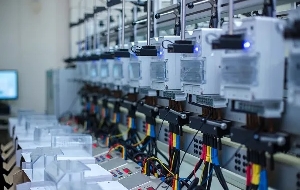Executive Secretary at Chamber of Petroleum Consumers (COPEC), Duncan Amoah, has disclosed that the calls made by transport operators to ensure government scraps some taxes on fuel at the pumps is not a misplaced act.
According to him, he has had consultations with these drivers and he believes that the drivers are not being “ignorant” or mischievous in making those demands from government. Mr Amoah explained that the incessant complaints by transport operators and the general public at large is what has spiralled into the current situation.
“Clearly, the calls by these transport commercial operators are not a misplaced one. Every single Ghanaian who buys petrol one way or the other, has over the past few months had cause to complain. The complaint has come in the form of what their pockets are recording. For people who used to probably use 200gh for their entire week, today, you need about 320gh and 330gh in order to be able to go about your week. So, there’s general hardship that these fuel price increment has brought onto the people”.
Mr Duncan Amoah
Currently, the Ghana Private Road Transport Union (GPRTU) has suspended its nationwide strike, which took effect on Monday, December 6, 2021. According to the leaders of the union, the strike has been suspended because of an invitation from the Presidency to deliberate on their demands.
Scrapping taxes on fuel prices
Commenting on the meeting scheduled at 4pm on December 6, 2021, the COPEC boss intimated that what they will be discussing is a “myriad of taxes” of which they reckon some could be suspended. He indicated that if government decides to suspend some of the taxes, albeit momentarily, some of the high pumps which has crossed “30 cedis a gallon” could actually “decelerate” a bit. This, he emphasized, will ensure that food prices do not necessarily go up, likewise cost of goods and services.
“Per calculations we have done in-house, if government was to give all the taxes that the trotro or the commercial transport operators are asking for to be given, not to be scrapped but to relieve for a quarter, what government would lose, generally [will] be something in the region of GHC 800 million. Is this revenue lost? The answer is no. As we speak, government is also taking out crude for export and anytime you talk about crude being 70 [and] 80, those are revenues that we are discussing for government. Once crude goes up, it will eventually trickle down to the price of a finished product. A finished product also goes up and then the pump prices follow”.
Mr Duncan Amoah
Mr Amoah disclosed that his outfit has devised a “formular” for government with respect to crude price, taking into consideration that Ghana is an “oil producing country”. He noted that a copy of this formular has been submitted to the NPA, the Energy Ministry and Finance Ministry. The formular, he explained, highlights the fact that if crude prices move up to a certain point, government eases the taxes to a point. However, if it decelerates or goes down, government also enforces the taxes.

The COPEC boss underscored that if government reduce these taxes, during “rough” times such as the festive season, it is likely to take a bit of a hit but will eventually make up for that hit from international market prices of the crude exported.
“So, there’s something to give and there’s something to gain. Unfortunately, the finance minister has been pretty much adamant to the cries and concerns of Ghanaians. You’d be surprised that the general strike action that was embarked upon this morning, instead of being unpopular with the people, it’s rather popular because a lot more who are not necessarily transport operators, are also feeling a pinch of these taxes”.
Mr Duncan Amoah
READ ALSO: GPRTU Directs Drivers to Suspend Strike



















